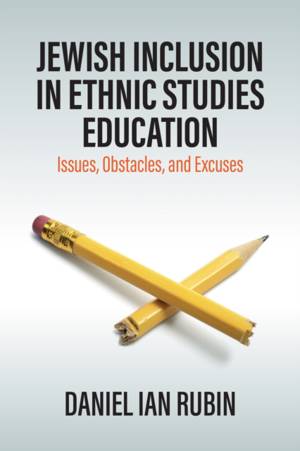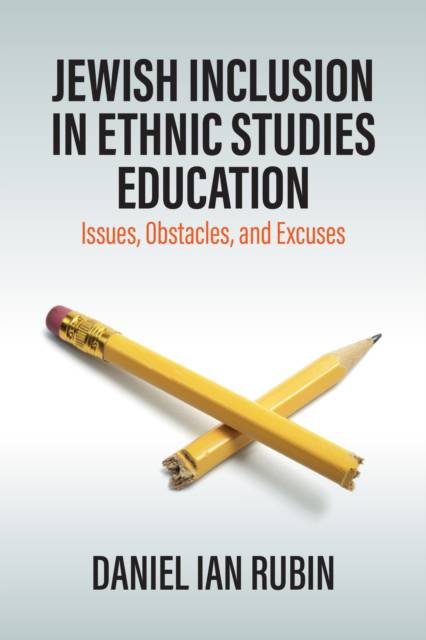
Bedankt voor het vertrouwen het afgelopen jaar! Om jou te bedanken bieden we GRATIS verzending (in België) aan op alles gedurende de hele maand januari.
- Afhalen na 1 uur in een winkel met voorraad
- In januari gratis thuislevering in België
- Ruim aanbod met 7 miljoen producten
Bedankt voor het vertrouwen het afgelopen jaar! Om jou te bedanken bieden we GRATIS verzending (in België) aan op alles gedurende de hele maand januari.
- Afhalen na 1 uur in een winkel met voorraad
- In januari gratis thuislevering in België
- Ruim aanbod met 7 miljoen producten
Zoeken
Jewish Inclusion in Ethnic Studies Education
Issues, Obstacles, and Excuses
Daniel Ian Rubin
Hardcover | Engels
€ 193,45
+ 386 punten
Omschrijving
The function of ethnic studies education in K-12 schools remains a deeply contentious issue within the U.S. Often based on university ethnic studies courses, its focus on the lived experiences of Black, Latino, Indigenous, and Asian/Pacific Islander communities is predictably the target of much conservative commentary, leaving its disregard for the lives of American Jews underexplored. Focusing on how this absence correlates with the rising spate of antisemitism within the U.S., Jewish Inclusion in Ethnic Studies Education provides a clarifying re-examination of the current issues and oversights affecting ethnic studies teaching. In doing so, Daniel Ian Rubin illuminates the possibilities a reformed ethnic studies program offers for eliminating antisemitism among the next generation.
Specificaties
Betrokkenen
- Auteur(s):
- Uitgeverij:
Inhoud
- Aantal bladzijden:
- 156
- Taal:
- Engels
Eigenschappen
- Productcode (EAN):
- 9781836950851
- Verschijningsdatum:
- 1/08/2025
- Uitvoering:
- Hardcover
- Formaat:
- Bibliotheekbinding
- Afmetingen:
- 152 mm x 229 mm
- Gewicht:
- 358 g

Alleen bij Standaard Boekhandel
+ 386 punten op je klantenkaart van Standaard Boekhandel
Beoordelingen
We publiceren alleen reviews die voldoen aan de voorwaarden voor reviews. Bekijk onze voorwaarden voor reviews.









